National Mentoring Month is recognized each January to focus attention on the need for and importance of mentors who volunteer their time to assure positive outcomes for young people. VBCPS is fortunate to have many individuals from the community, businesses, military, faith-based organizations and government agencies who mentor students in our schools. Their work will be highlighted on The Core throughout January.
On Thursdays Rosemont Elementary PE assistants Sharon DePeralta and Taniya Walker have lunch with the boys — the Rosemont Boys’ Club that is.
“What do we always say?” DePeralta asks the fifth-grade boys around the table.
“You catch more flies with honey,” begins one student, “than with vinegar,” finished the boys in unison.
DePeralta and Walker established the club two and half years ago to connect with a few fifth-grade students they thought might benefit from extra support outside the classroom and having a few more listening ears.
Years later, the two staff mentors are still listening.
“Does anyone want to start with their concerns?” asks DePeralta.
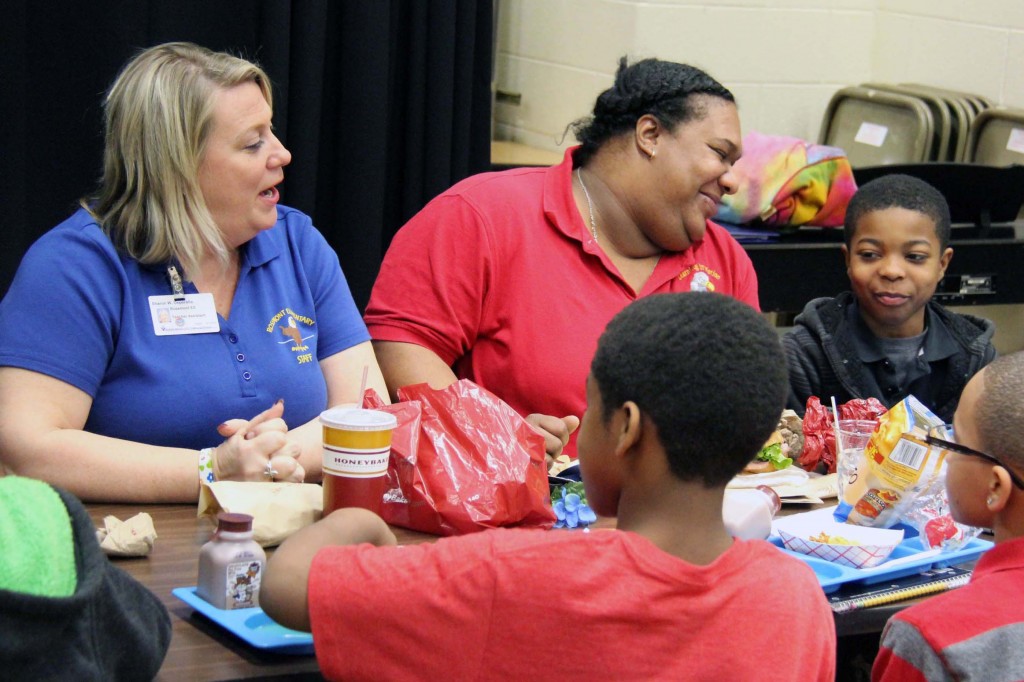
The students always bring a journal in which they have written about one positive experience from the week as well as any concerns, thoughts or feelings.
“It helps me relieve what I am thinking,” said one student about the journal and the club’s lunch meetings. “I used to keep everything inside, and it made me angry. I am less stressed now.”
One club member answers DePeralta’s question about concerns, “My teacher was mad at me yesterday.”
Walker seeks clarification. “Why was your teacher mad at you?”
“I might have been talking when I shouldn’t have,” the student answered with a sheepish smile.
The group discusses the importance of listening and showing respect.
DePeralta asks, “You have to give what to get what?” The students know the answer.
“Respect!”
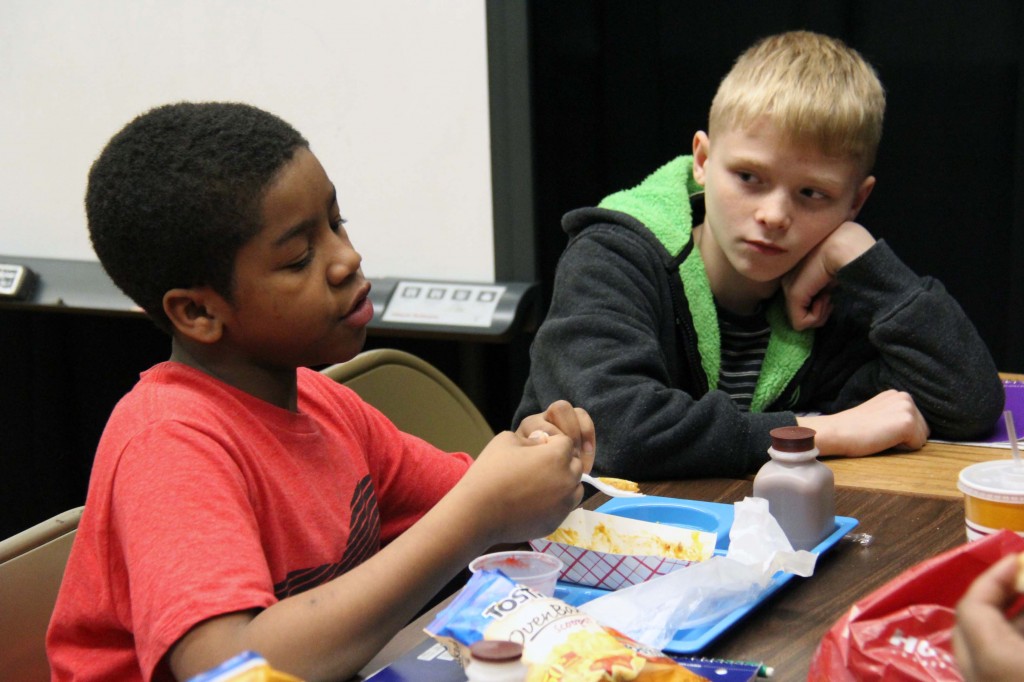
A second student said he had trouble with division problems during math.
“What could you do as a next step?” coached Walker. “Ask my teacher for extra help,” he responds.
“You know Ms. Rose will help you in any way she can,” Walker affirms, and another student at the table offers to help his fellow Boys’ Club member with division.
“I have a good thing to share,” chimes in one club member, and attention shifts to good news to end the lunch period.
The fifth-grader visited Cloud9 trampoline park over the weekend, and the boys start swapping stories of other birthday party activities they like.
“I want to go zip lining,” announces a club member. There is talk of a possible field trip.
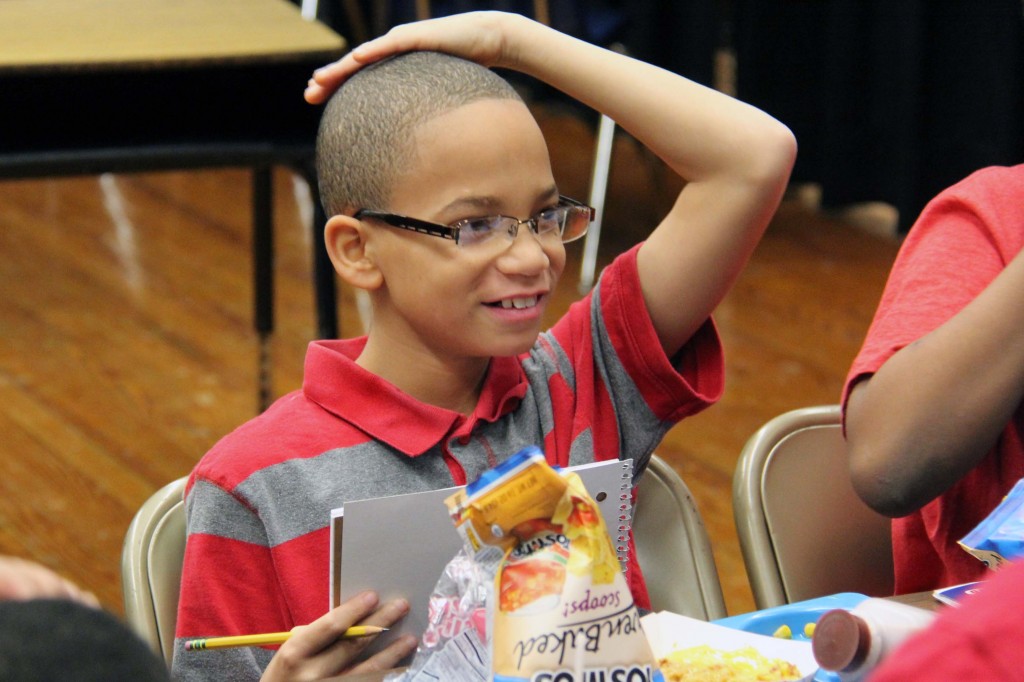
DePeralta and Walker also lead the school’s STEM club and have been pleased that some Boys’ Club members have joined as a result of their weekly lunch sessions.
“We tell the boys, ‘We want you to be successful and we want you to set a good example for others,’” said DePeralta.
As DePeralta and Walker meet with their boys in the cafeteria, a lunch meeting of all girls is underway in the principal’s office.
Rosemont principal Cari Hall hosts monthly book clubs throughout the school year, meeting with select students from every fourth- and fifth-grade class. Hall explains that it is a way for her to build relationships with students, reinforce lessons from the classroom and, hopefully, inspire their own love of reading. She looks for characters with whom the students will identify, and intentionally selects books from a series so students will be more likely to continue.
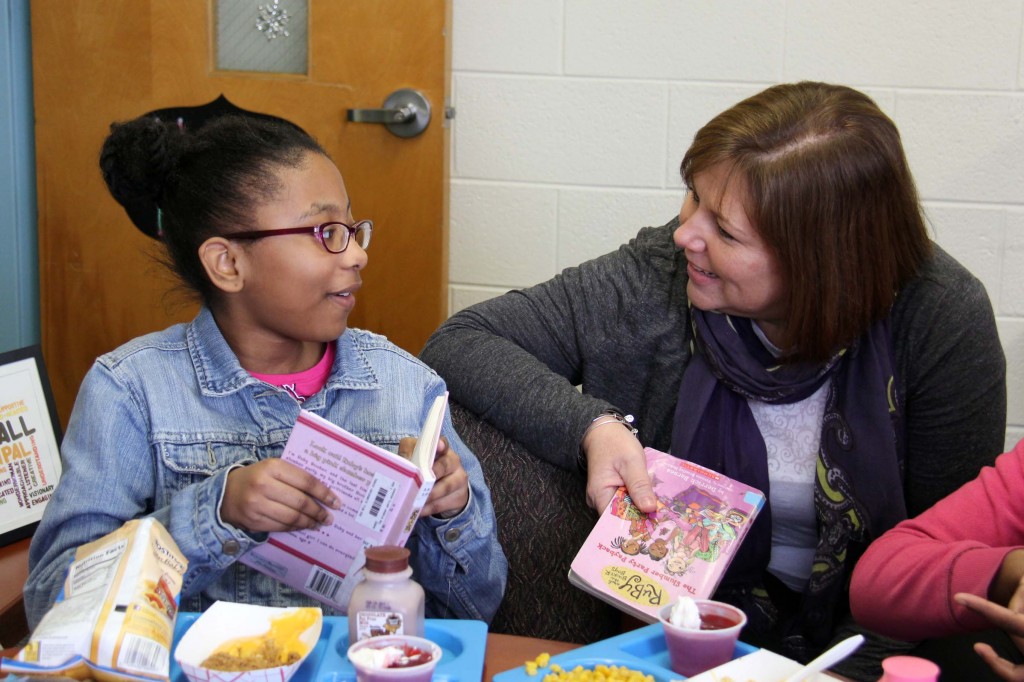
At this meeting of the book club, fourth-grade girls are discussing the latest in a series of pranks between two siblings during a slumber party.
Hall peppers the group with questions throughout the lunch discussion and guides them to make connections as needed.
Why did they put cheese toothpaste in Ro’s bathroom?
What does it mean if the stuffed animals smell “hog bad?”
What is suspicious about Ro doing homework on a Friday night?
See how those words are written? What is that font type? It starts with an “I.”
How does Ruby react?
What do you think is going to happen? Is Ro going to get Ruby back? That is called a “cliffhanger.”
The girls have answers to every question, citing the text and making their own observations. They even have an opportunity to correct the principal when Hall questions that baby powder was the substance used in one of the brother’s pranks.
All seven girls quickly flip through the pages to find proof, and several students read the passage to her at once.
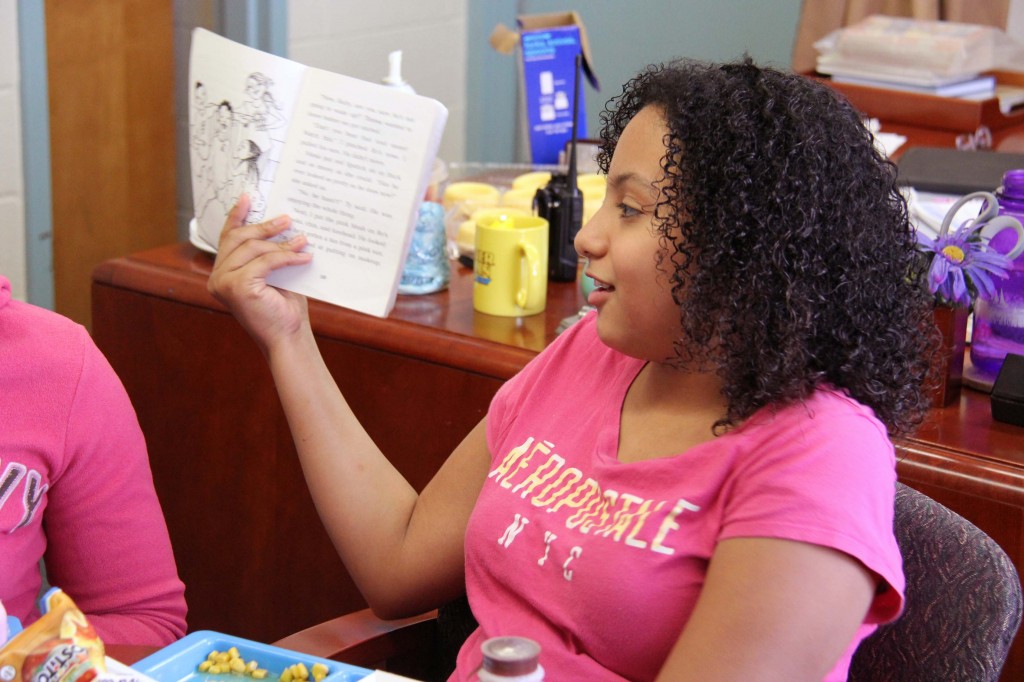
“Oh,” says Hall, “You guys are better reading detectives than I am. You got that small detail and I missed that.”
The fourth-grade girls laugh, and Hall compliments their work.
“I like how you are referring to the text. That’s a good strategy when you are reading for fun or for a test.”
Hall closes the book club meeting by asking, “If you had to describe Ro in one word, what would it be?”
The brainstorming begins. “Pranker.” “Sneaky.” “Meanie.” “Cruel.” “A bad, horrible brother.”
“That’s more than one word,” says Hall with a smile.
“I think he’s clever,” offers Hall. “I think he’s all the things you said. All of his pranks are pretty smart. I mean, how do you get baby powder in a camera? How do you get a swimming pool to turn green and then people turn a different color when get out of it? How does he get a door to stick shut? These are things he really has to think about.”
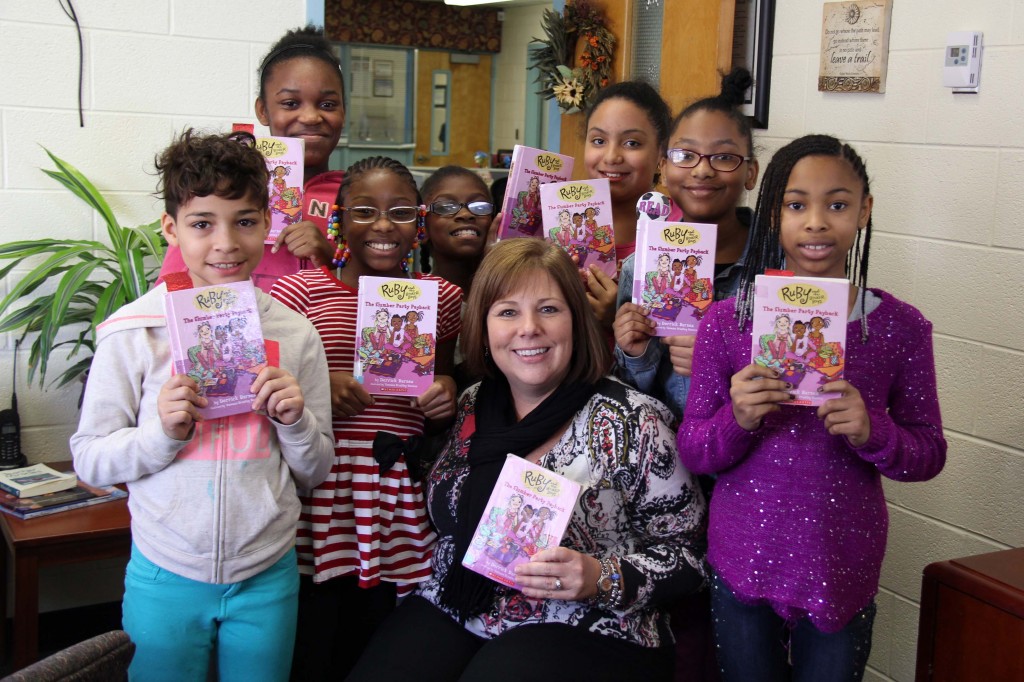 The girls agree with Hall’s bewilderment and speculate what will happen in the book’s final three chapters. It seems clear to everyone that they can expect more pranks between the siblings.
The girls agree with Hall’s bewilderment and speculate what will happen in the book’s final three chapters. It seems clear to everyone that they can expect more pranks between the siblings.
Hall likes what she hears.
“You all are the best readers,” she praises. “Everybody has contributed something and has talked about what they’ve read, and that makes me very happy. I’ll be sure to share that good news with your teacher as well.”

Rosemont students ROCK!
Rosemont students are Soaring High!